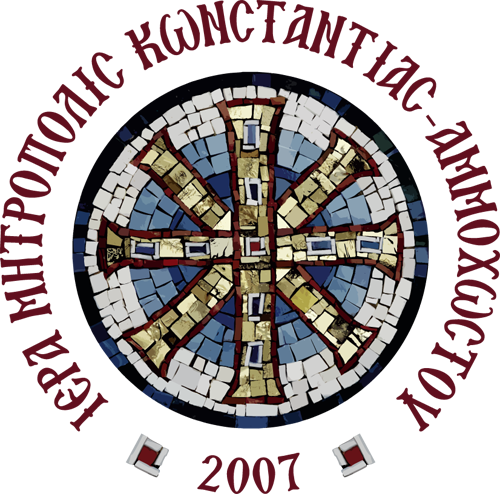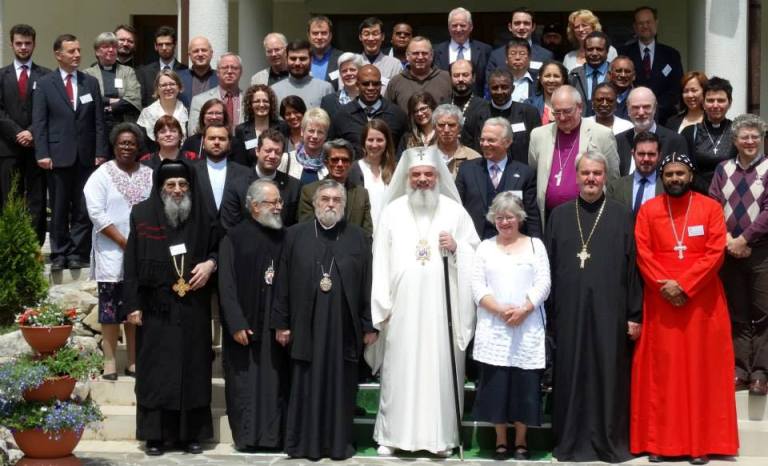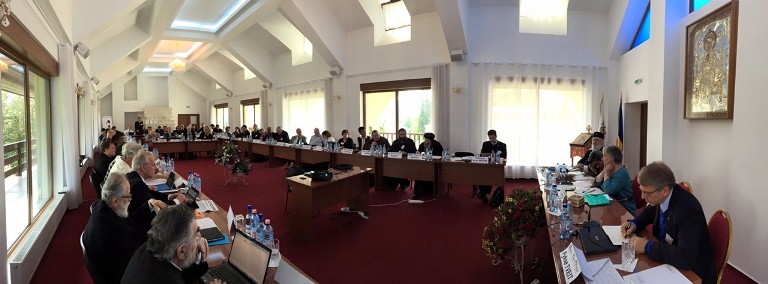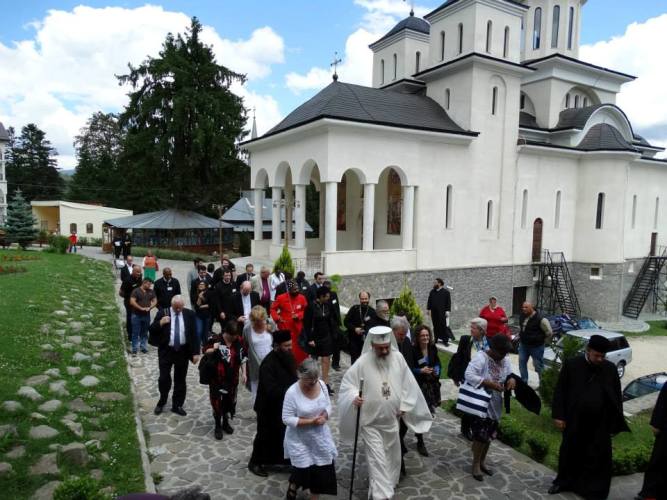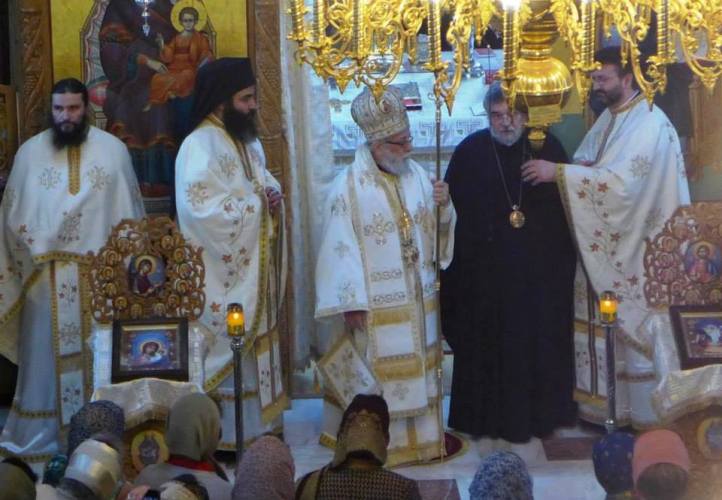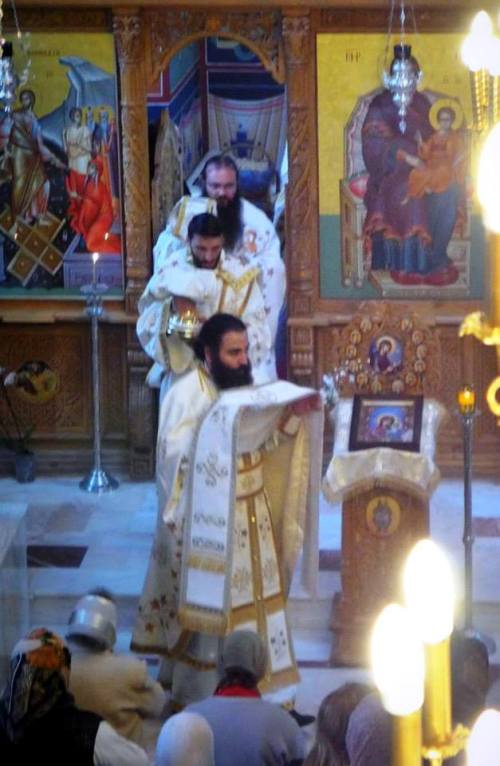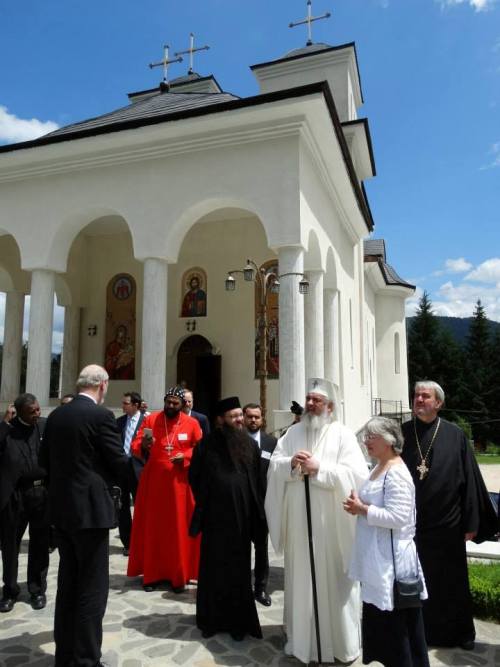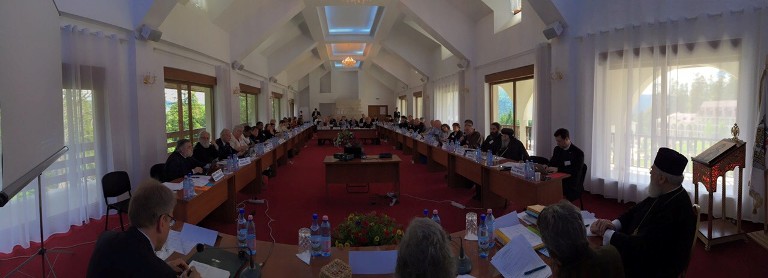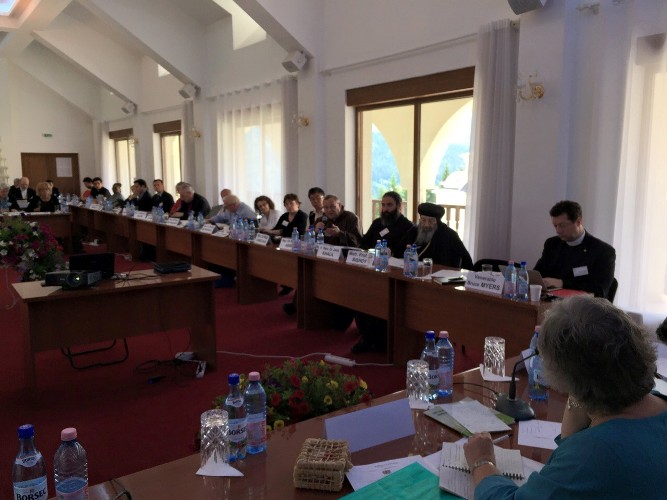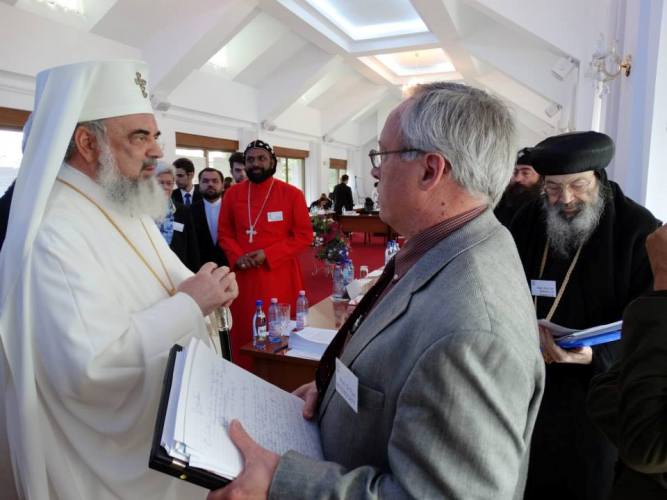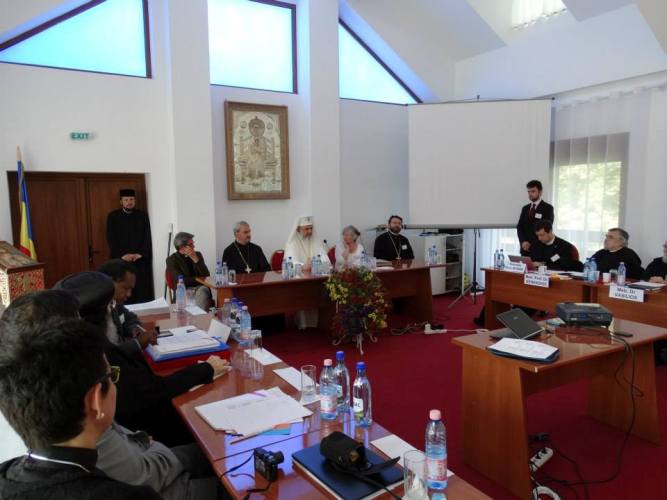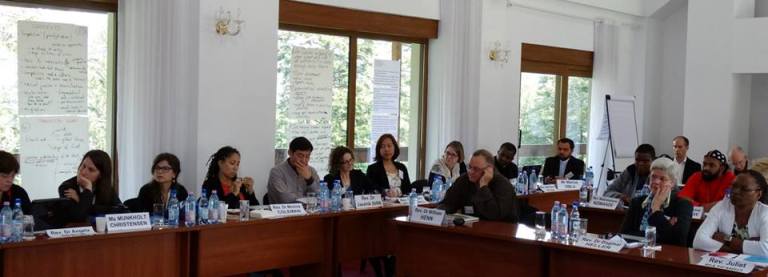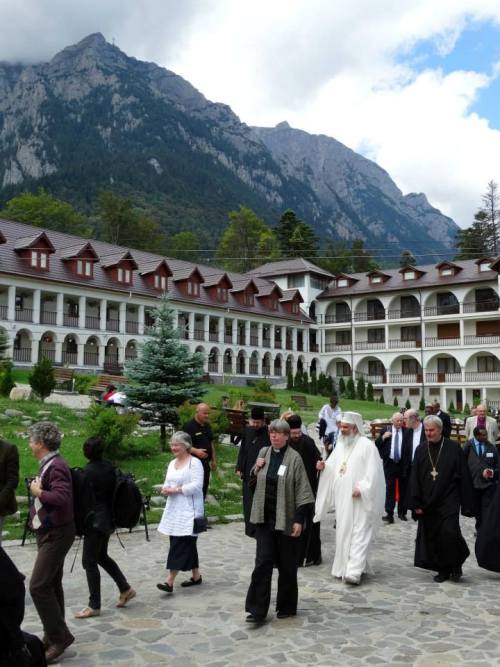Συνάντηση Επιτροπής Πίστις και Τάξις- Ρουμανία (18-24 Ιουνίου)
Πραγματοποιήθηκε από 17-24 Ιουνίου 2015 στο Caraiman Monastery στη Ρουμανία, συνάντηση των μελών της Επιτροπής Πίστις και Τάξις του Παγκοσμίου Συμβουλίου Εκκλησιών (ΠΣΕ) με σκοπό να καθοριστούν οι κύριοι άξονες και η κοινή δράση για το διάστημα 2015-2020 οπόταν και θα πραγματοποιηθεί η επόμενη Συνέλευση. Τους συνέδρους προσεφώνησε μεταξύ άλλων και ο Μακαριώτατος Πατριάρχης Βουκουρεστίου και πάσης Ρουμανίας κ.κ Δανιήλ.
Στην συνέλευση έλαβε μέρος και ο Πανιερώτατος Μητροπολίτης Κωνσταντίας κ. Βασίλειος, ως μέλος της επιτροπής. Το πρωί της Κυριακής 21 Ιουνίου 2015, ο Πανιερώτατος προεξήρχε της Θείας Λειτουργίας στην Ιερά Μονή.
Το δελτίο τύπου της συνέλευσης (στην Αγγλική γλώσσα)
Meeting from 17 to 24 June, the newly reconstituted Commission on Faith and Order of the World Council of Churches (WCC) has begun to define its principal trajectories for ecumenical study and common activity from 2015 until the next WCC Assembly in 2020.
Gathered at Caraiman Monastery in Romania, the 49-member commission determined to focus its upcoming work in the areas of examining theological foundations of the WCC programme emphasis “the pilgrimage of justice and peace”, continuing work on dialogue and the discovery of common ground among churches regarding the Christian doctrine of the Church, and coordinate consultations and seminars on how churches engage in processes of “moral discernment” when deciding policies leading to action on such topics as climate change, slavery, apartheid, human sexuality and matters of life and death.
The commission will also encourage such long-term activities as collaboration with the Pontifical Council for Christian Unity of the Roman Catholic Church facilitating, for example, the annual preparation of resources for the Week of Prayer for Christian Unity, and joining other offices in the WCC and partner agencies in activities related to inter-religious dialogue and cooperation. It works, too, with the Ecumenical Disabilities Network and the Ecumenical Network of Indigenous Peoples.
The commission’s moderator is the British theologian Rev. Dr Susan Durber of the United Reformed Church in the United Kingdom. In remarks in the closing session of their meeting, she told the commissioners that “I feel that a new wind is blowing.”
She reminded commissioners and staff, “The Church is God’s creation, not ours”, arguing that anxiety for religious institutions is wasted: “Overcoming poverty – this is where the real crisis is!”
Referring to the economic and cultural globalization of the early 21st century, Durber posed the question: “What does Christian unity bring to a world that tries to impose another kind of unity?” And she offered this word of assurance: “We are those who can afford not to be anxious, because Christ has already done what we need to be done.”
Pilgrimage in a pluralistic world
A major task at the meeting was the establishment of working groups to oversee the commission’s chosen projects. While precise details will be designed by these groups in later meetings, a broad picture emerged of Faith and Order’s concerns in the latter half of this decade.
The working group that focuses on issues surrounding “the pilgrimage of justice and peace” hopes to sponsor discourse on the theological foundations of pilgrimage. It will ask how the concept and practice of pilgrimage may be lived out in a multi-religious, multi-cultural and secular age, not least among minority and oppressed churches. Another theme to be engaged was described as “Christian responsibility and hope in a broken world”. The environmental crisis may be addressed under this rubric, alongside justice and peace.
The Church
In Christian theology, study of the doctrine of the Church is termed “ecclesiology”. A series of Faith and Order documents have addressed aspects of ecclesiology and ecumenical dialogue, including the publications Baptism, Eucharist and Ministry; The Nature and Purpose of the Church; Nature and Mission of the Church; and The Church: Towards a Common Vision. Responses continue to be received in regard to questions posed by the latter document, and these will be analyzed along with the history of challenges and accords arising from earlier publications. Continuing dialogue among widely diverse churches also will continue.
Moral discernment and the sources of Christian social ethics
Consultations will be organized on how particular churches arrive at moral decisions, reviewing historical instances of change in positions on moral issues. Examples suggested include churches’ policies on slavery, apartheid, abortion, suicide, euthanasia and the ordination of women to offices of ministry.
Within the coming week, Faith and Order staff in Geneva will submit budget proposals for the 2016 fiscal year. Recommended projects will proceed based on resources available from the WCC and interested partners.
An ecumenical heritage
The Faith and Order movement among Christian churches built during the early years of the 20th century and was organized on a global scale through its first international conference at Lausanne, Switzerland in 1927. There, delegates from various Christian churches proclaimed that “God wills unity”, and “however we may justify the beginnings of disunion, we lament its continuance.”
The World Council of Churches came into being following the Second World War largely through a merger between the theologically oriented Faith and Order movement and the Life and Work movement which showed primary concern for practical means by which churches could act together on social issues and oppose injustice.
Initially made up of Orthodox, Anglican and Protestant churches, Faith and Order has continued its work as a commission of the WCC and now includes churches from outside the formal membership of the World Council of Churches. The Roman Catholic Church became a full participant following the Second Vatican Council of the 1960s, and the Assemblies of God is a commission member.
